04:22
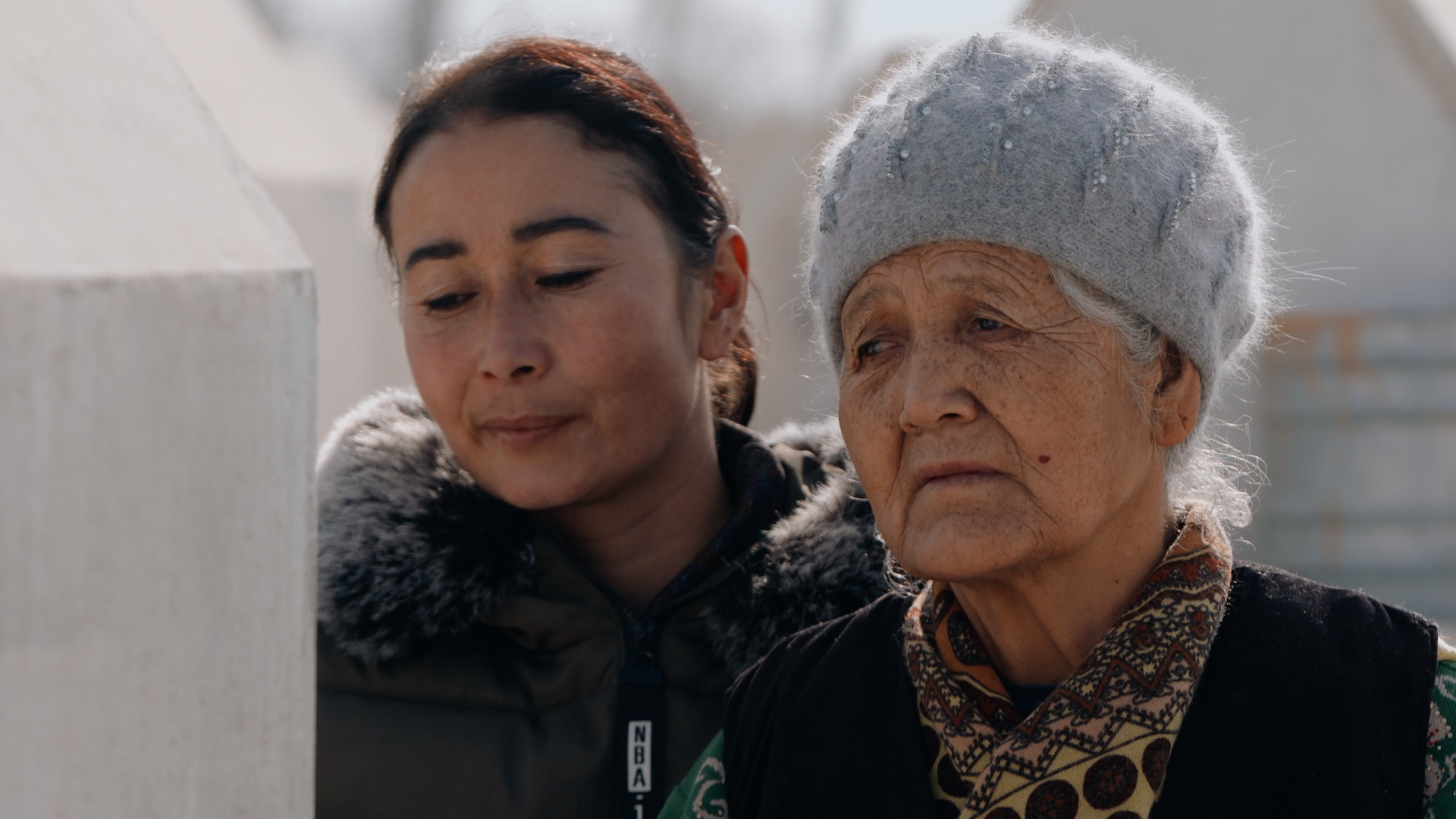
The city of Aksu in northwest China's Xinjiang Uygur Autonomous Region has undergone tremendous changes these past decades. Once a barren region lying on the edge of the country's largest desert – the Taklamakan, Aksu and its outlying areas have seen rapid urban development and greening. This pace of change, however, is often brought up in certain Western narratives as grating against age-old customs, one that touches on an intensely personal and religious subject for locals – cemeteries.
A cemetery in Xayar County of Aksu Prefecture has recently become the focus of international controversy. CNN reported that graveyards in the region were being demolished by authorities, highlighting stories such as that of Aziz Isa Elkun, a Uygur poet now residing in London, who had said he couldn't find his father's grave on Google Maps. The article implies that the "destruction" of these Uygur cemeteries, a central part of local communities, was part of a systematic effort to erase Uygur culture.
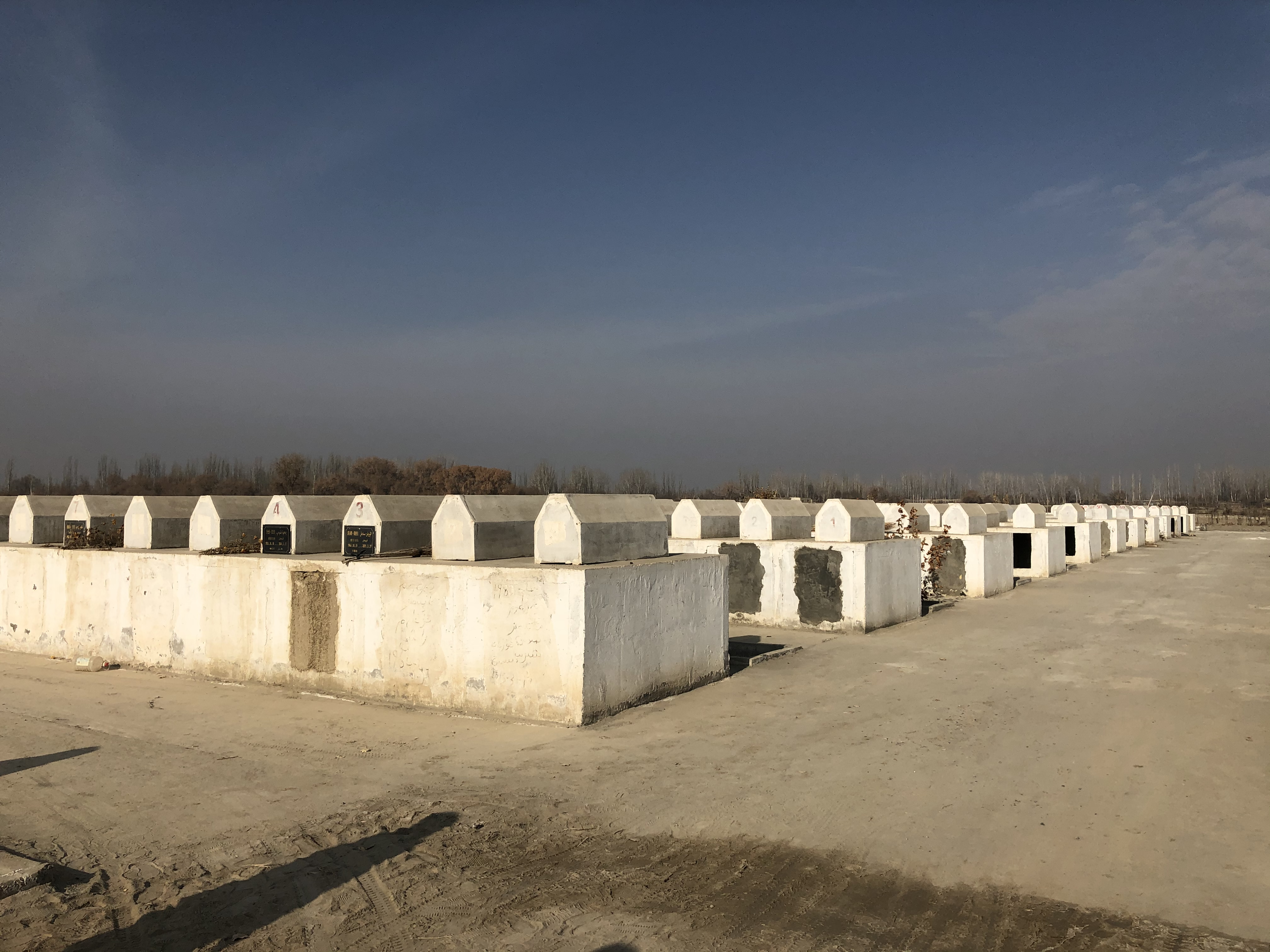
The new eco-friendly cemetery where Aziz's father is buried in Xayar County, northwest China's Xinjiang Uygur Autonomous Region, January 8, 2020. /CGTN Photo
The new eco-friendly cemetery where Aziz's father is buried in Xayar County, northwest China's Xinjiang Uygur Autonomous Region, January 8, 2020. /CGTN Photo
So a crew from CGTN decided to find out if there was any truth to that implication. A roughly four-hour drive from Aksu's city center lies the village of Yegiqiman, a place of charming antiquity, where CGTN found Elkun's family.
"I haven't seen Aziz since early 2017. He came back in February 2017 to take care of his father who was seriously ill back then, and that was the last time we met," said Hepizem Nizamidin, Aziz's mother. The 78-year-old Uygur woman tottered to her husband's grave, which lies next to those of his parents and brother.
The No. 47 grave sits in a cemetery that houses thousands of graves. On December 15, 2018, Hepizem moved the remains of her husband Eysa Abdula here from a site less than 100 meters away – once an old, dilapidated land filled with unmarked grave mounds.
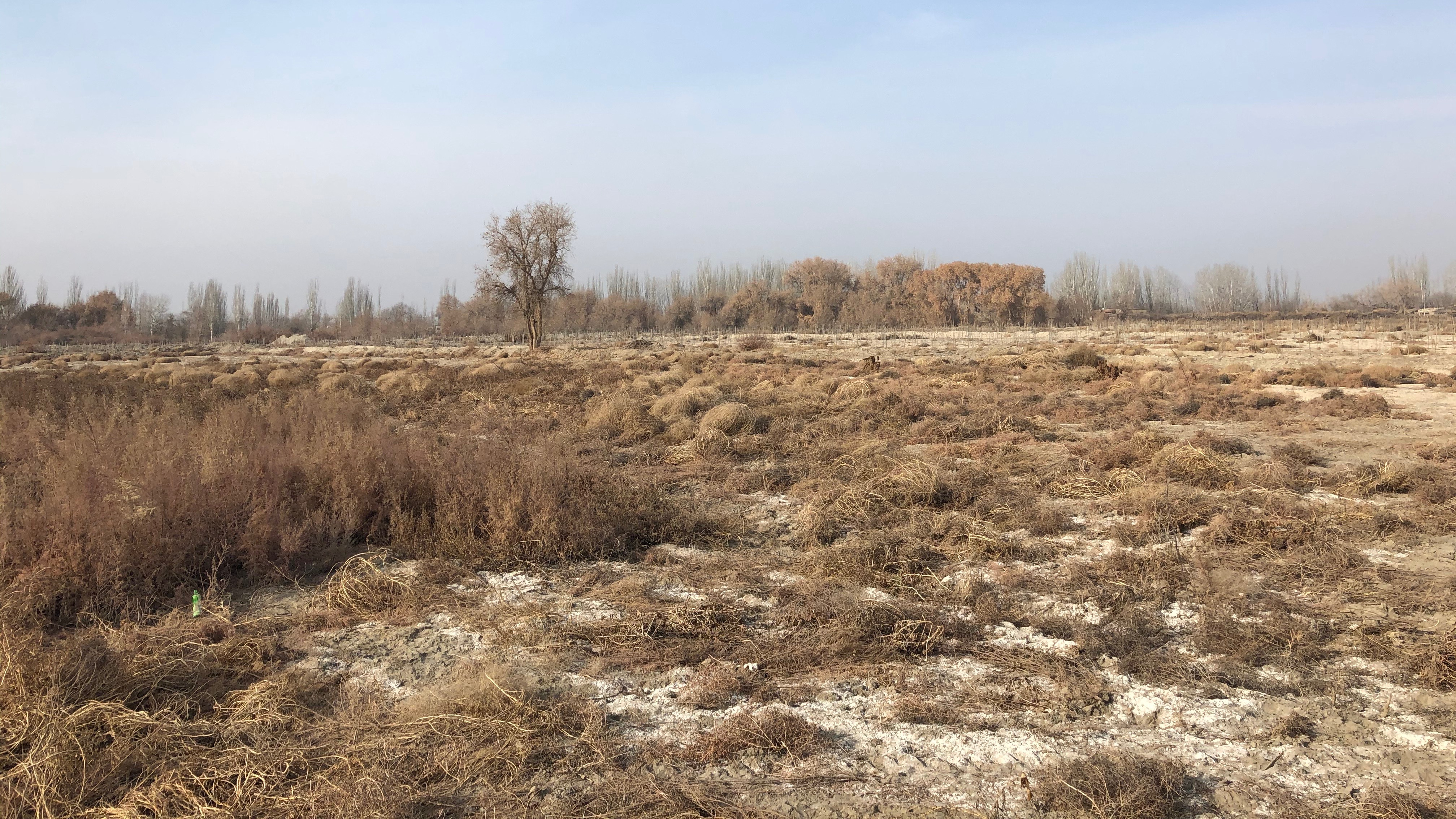
The old graveyard where Aziz's father had been buried in Xayar County, northwest China's Xinjiang Uygur Autonomous Region, January 8, 2020. /CGTN Photo
The old graveyard where Aziz's father had been buried in Xayar County, northwest China's Xinjiang Uygur Autonomous Region, January 8, 2020. /CGTN Photo
The old grave site – dusty and unkempt – had been battered by the scathing sun, seasonal floods, and dry, dusty winters for decades. After Eysa died from a heart attack in November 2017, his family laid him to rest in this burial ground according to Uygur Muslim funerary rites.
"Aziz did not return for his father's funeral, so he had no idea about the burial site," Hepizem told CGTN. Aziz only called back in December 2017 – the last time they heard his voice.
Hepizem and her family had been afraid that one day they could not find Eysa's grave amid deluges of rain and dust. "We had to walk through the muddy, meandering lanes to get to the grave, always worried that we could miss it as the whole site was unattended," said Aziz's younger sister Hvrlem Eysa.
Their concern was alleviated the following April when they heard the news that a standard, concrete cemetery would be built near these old grave mounds. They applied for relocation back then and moved Eysa's grave to the new cemetery in December 2018.
"I feel assured that my husband can now rest in a peaceful, tranquil place with flowers around," said Hepizem. "I will never miss him whenever I miss him."
03:13
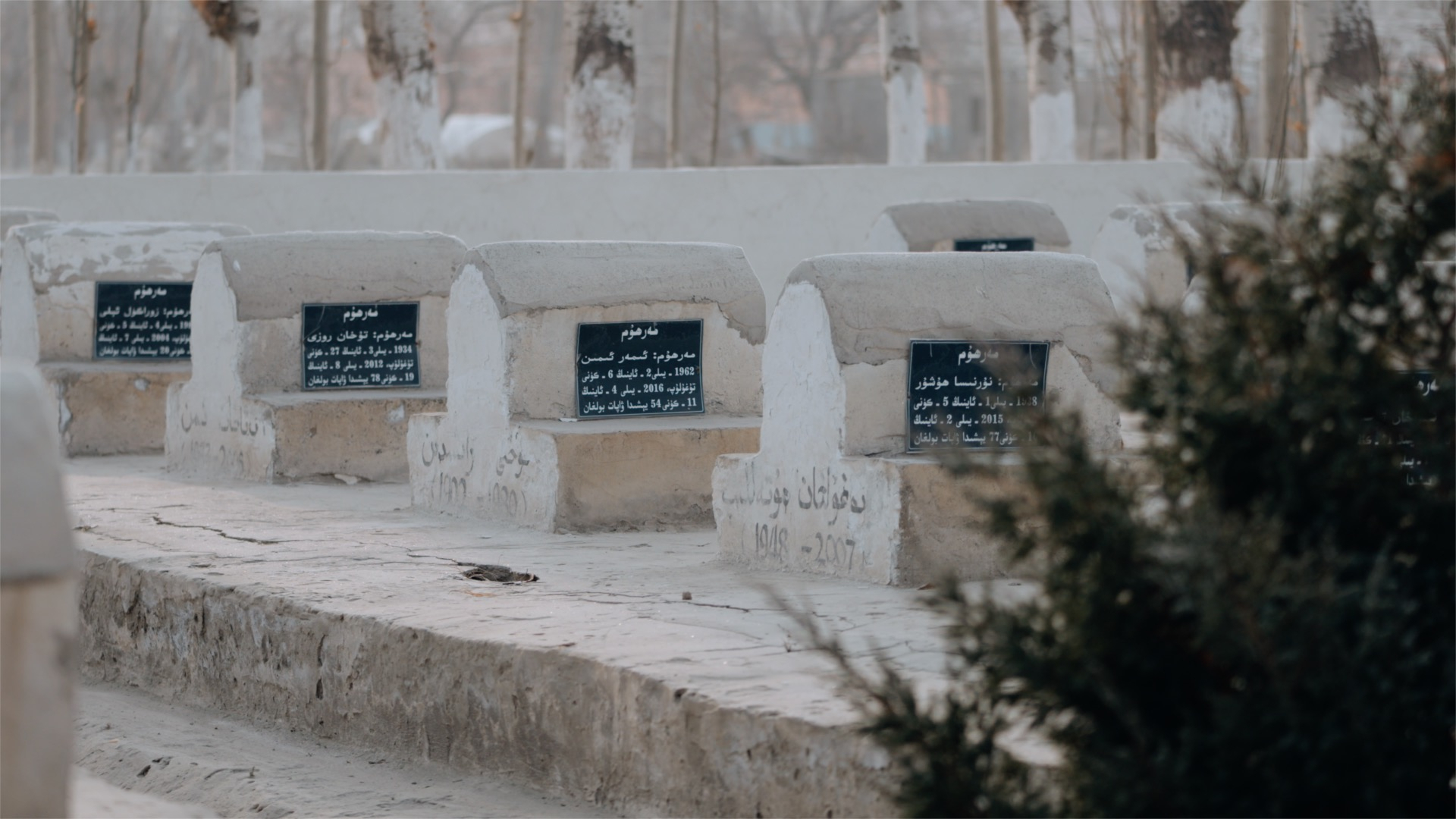
Hepizem is not alone in Xinjiang's grave "disappearance" myth perpetrated by CNN and other Western media outlets.
Some villagers are not even able to find the graves of their departed families, just like Sadir Yasin, whom CGTN had talked to days ago in Aksu's Uqturpan County.
"Now, we can't find my grandfather's grave as the branch erected on it is nowhere to be found," Sadir said. The grave mound of his grandpa could no longer be identified years ago due to massive flooding and whipping dry winds.
Read more: Battling against time in China's unmarked Muslim cemeteries
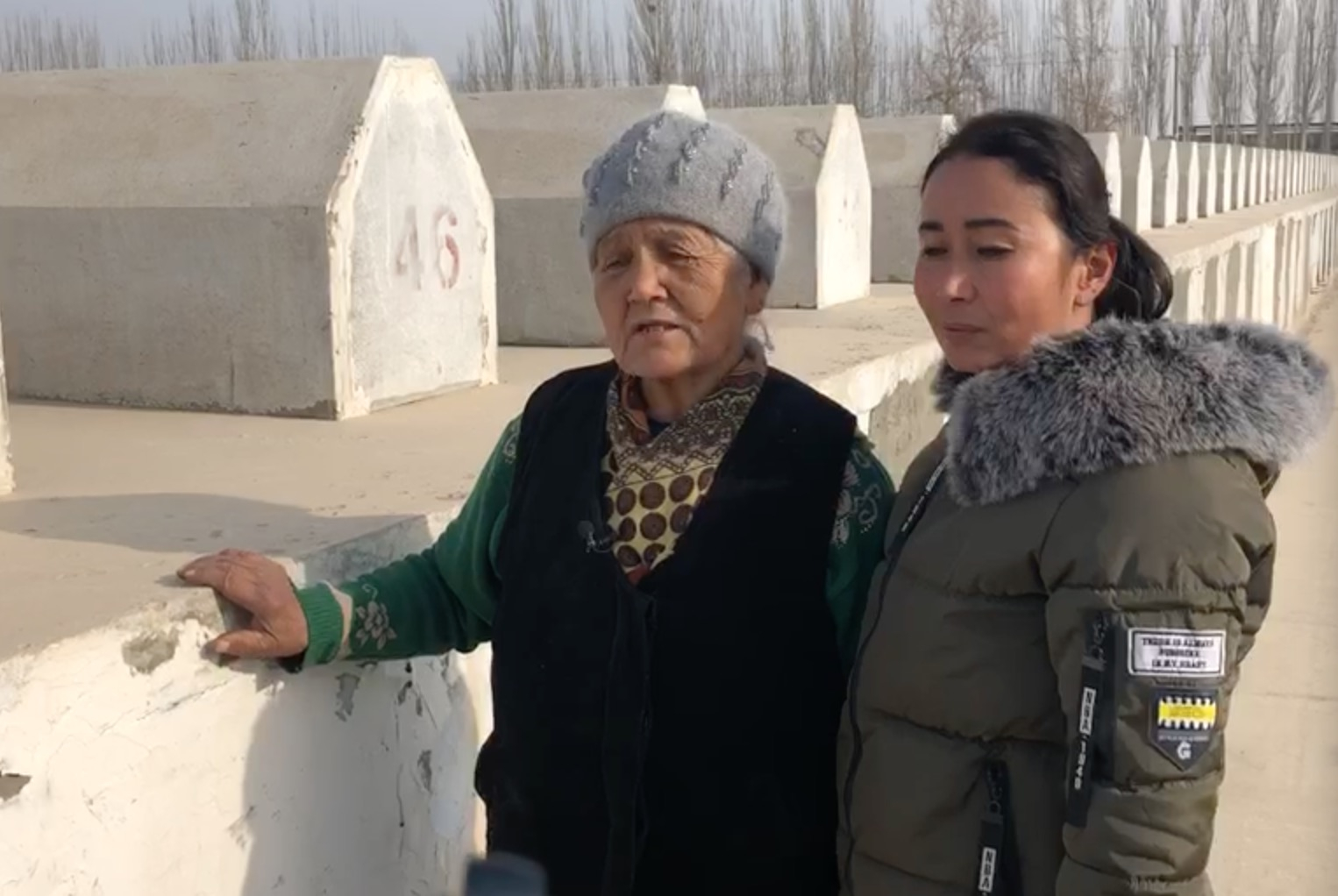
Aziz's mother Hepizem Nizamidin and sister Hvrlem Eysa visit his father's grave in Xayar County, northwest China's Xinjiang Uygur Autonomous Region, January 8, 2020. /CGTN Photo
Aziz's mother Hepizem Nizamidin and sister Hvrlem Eysa visit his father's grave in Xayar County, northwest China's Xinjiang Uygur Autonomous Region, January 8, 2020. /CGTN Photo
In the early 2000s, local civil affairs bureaus received complaints from residents about the decrepit environment regarding the old graveyards and the difficulty in finding the graves of their deceased relatives. Local governments have since spent over a decade seeking public opinions and building new environmentally-friendly cemeteries.
There are now 821 eco-friendly cemeteries in Aksu Prefecture, the majority of which were built near their corresponding old graveyards, and can satisfy demand for the next 20 years. The old graveyards, estimated at 2,787, were either turned into farmland to help generate more income for poor households or maintained as it is for those who can't locate their families' graves to visit from afar.
"Next we are making these graves greener, creating a better environment for people to come to talk to their beloved ones," said Halmurat Ismail, head of the civil affairs bureau at Aksu's Uqturpan County.
Reporter: Wang Zeyu
Article written by Wang Xiaonan
Videographers: Wang Zeyu, Fu Gaoliang
Voiceover: Zeng Ziyi
Supervisor: Zhang Shilei